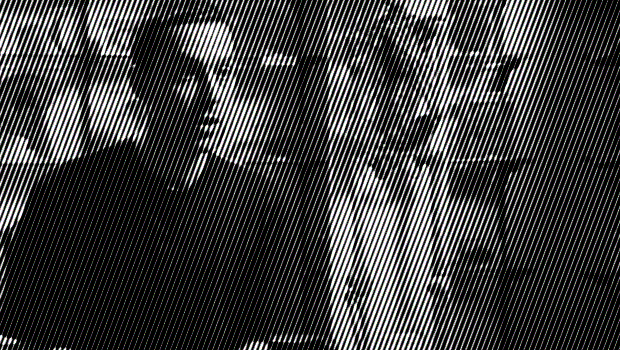
In a text from 1988, the British philosopher Nick Land observed that modern civilization is precarious. Western society after the Enlightenment discovers economic growth through an unprecedented openness to novelty, or "synthesis" with its outside. But unlimited openness is technically equivalent to dissolution, so in fact the "open society" just as frequently must police its traffic with the outside—often covertly. According to Land, Kant smuggles into his critical philosophy certain limitations on human thought, which parallel certain unstated institutional requirements for the viability of modern civilization. Namely, patrilineal exogamy and national borders.
Patrilineal exogamy is our present kinship system (at least for now), in which surnames are passed down on the father's side and children are married off outside the family. Whereas exogamy runs parallel to capitalist expansion and synthesis, patrilineal descent enforces identity and continuity between generations. The nation-state creates an additional limitation on sexual synthesis, reducing the globalization of reproduction, but it also allows wealthy countries to export poverty, rebellion, and other unsavory phenomena that constantly threaten to disrupt returns on capital.
In short, patrilineal exogamy and national borders are crucial, unstated elements of infrastructure for modern civilization as we know it. They are the secret ingredients that allow for the West's openness to innovation and commerce, without the West dissolving as a result.
It is not accidental or unrelated that many today share a distinct perception that the West is dissolving. Land's academic essay is timely in the eeriest sense:
"The disaster of world history is that capitalism was never the progressive unwinding of patrilineage through a series of generalized exploitative relations associated with a trans-cultural exogamy, leading to an uncontrollable eruption of feminine (i.e. migrant) alterity into the father’s heartland, and thus to the emergence of a radical—or ethnically disruptive and post-patriarchal—synthesis."
The solution is what the anthropologist Claude Lévi-Strauss terms "dual organization." Echoed also in the critical philosophy of Kant, the essential idea according to Land is that insides must be securely separated from outsides—but connected by a system of reciprocal exchange—in order for novelty to be sustainably synthesized. We have found this a useful heuristic for thinking about the function of blockchains at the civilization level.
For today we are contending with an entirely new kind of reproduction and immigration crisis: an unverified and untraceable influx of bots, spammers, deepfakes and, eventually, much worse.
As terrestrial politics continue to overheat, capitalism will ultimately be stabilized on the digital plane: cognitive security between fathers and sons, information security between in-groups and out-groups, and secure borders between digital communities.
The task of postmodernity is to revitalize the civilizational infrastructure necessary to inhibit synthesis once more.